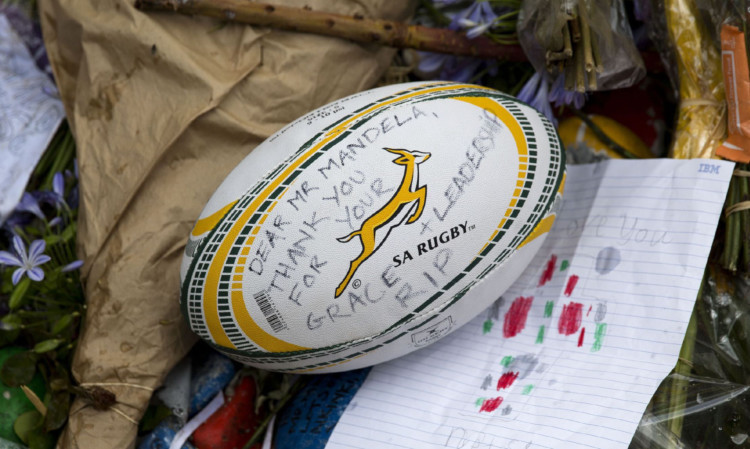When I met Nelson Mandela, we mostly talked about boxing.
At the time, October 1993, the sweet science was possibly the last thing on the great man’s mind. Just three years out of prison, the gradual transformation from an almost mythical figure to iconic statesman was still in process.
The opportunity came as basically my last act as The Courier’s local government reporter (do you really have to ask why I moved to cover golf?) and Mandela came to receive all his various freedoms from cities and councils in a job lot at Glasgow’s City Chambers.
The morning after the gala presentation and speeches, he agreed to a working breakfast with the editors of Scotland’s broadsheet newspapers. My editor at the time declined (no idea why; who wouldn’t want to meet Mandela?) so present at the Glasgow Hilton that morning were those two giants of the Scottish newspaper trade, Dr Arnold Kemp of the Herald and the Scotsman’s Magnus Linklater, and me.
I’d been somewhat involved in the anti-apartheid movement, and Mandela was as near to a hero as I have had. So I was absolutely petrified of being starstruck, and not without reason.
When he came into the room, there was an immediate, undefinable impression. Tiger Woods has spoken of it many times recalling he and his late father Earl’s private meeting with Mandela; the aura in the room they both felt.
But I’d come prepared for being basically speechless. Hence boxing.
Mandela was a big fan of the fight game, his own personal sporting hero, he remarked many times, was Muhammad Ali. The previous night there had been the second titanic meeting – “Judgement Day” – between Nigel Benn and Chris Eubank, both world champions whose rivalry divided the nation, although largely between those who detested Eubank and those who merely disliked him.
“Did you watch the fight last night, sir?” brought the ultimate thrill of seeing your hero’s eyes momentarily light up.
He had, and he’d loved it.
“Benn is a pure warrior, so brave, but Eubank, he is a scientific boxer, very skilful,” he said. He thought Eubank had won the epic battle which ended in a contentious draw.
I’d like to say that I wrote an insightful and pointed article on the lengthy discussion that followed about transition, democracy, forgiveness, reconciliation, all seemingly so much more relevant than sport but I was still starstruck over the keyboard.
Yet Mandela, two years later, taught us that sport is not irrelevant, not trivial. It engages the human psyche so profoundly that it can be used to bind people.
The Springboks, the South African rugby union team, are ingrained into the Afrikaaner and white culture in a way greater than just about any other sporting unit anywhere in the world. All Blacks in New Zealand? The Selecao in Brazil? Australia and the Baggy Green? Barca in Catalonia? Not even remotely close.
So much are the ’Boks revered by that people that they became a mirror image, the chief symbol of repression for the majority population in South Africa; Sir Ian McGeechan often tells of the 1974 Lions tour when a corralled, segregated section of non-whites cheered against the ’Boks in every test.
Yet Mandela, as the new president of a democratic South Africa, embraced that hated symbol and insisted that it spoke for the whole country. His act of wearing the green jersey at the 1995 Rugby World Cup did an inordinate amount in convincing the white population retaining most of the wealth, remember that they were still a vital part of the country’s future.
Clearly the country still has monumental difficulties, but one shudders imagining what could have happened after the indefensible mess that was apartheid inevitably ended.
Mandela recognised that sport and politics do mix, and positively. That’s far from his greatest legacy, but it’s still a significant one.
